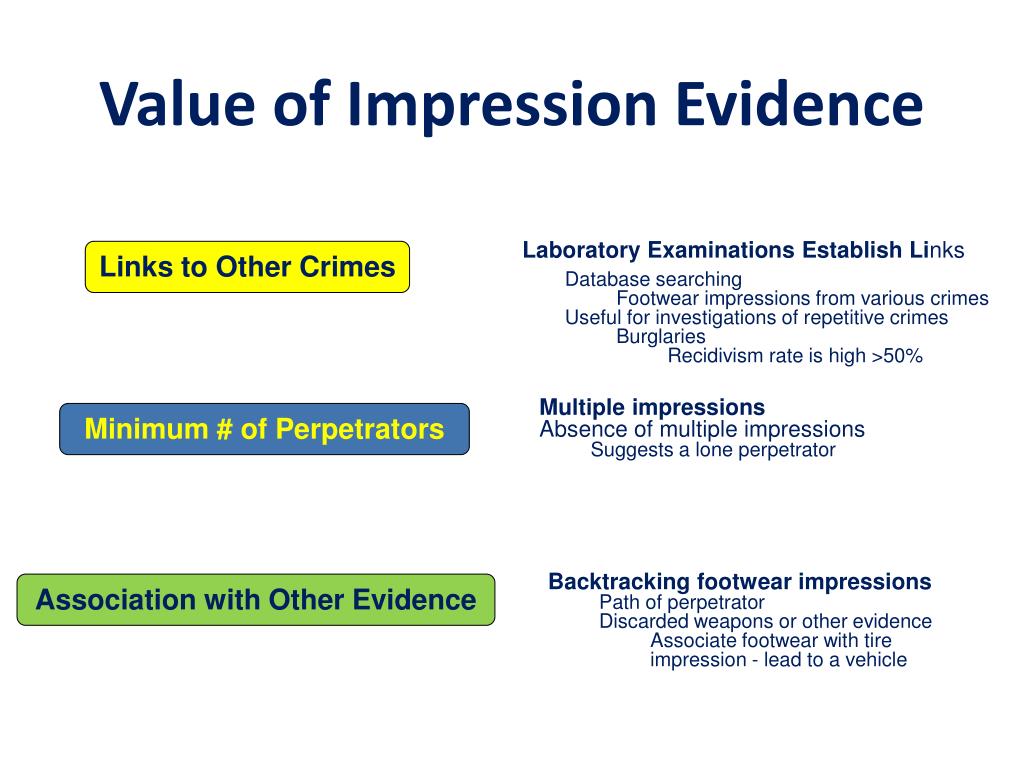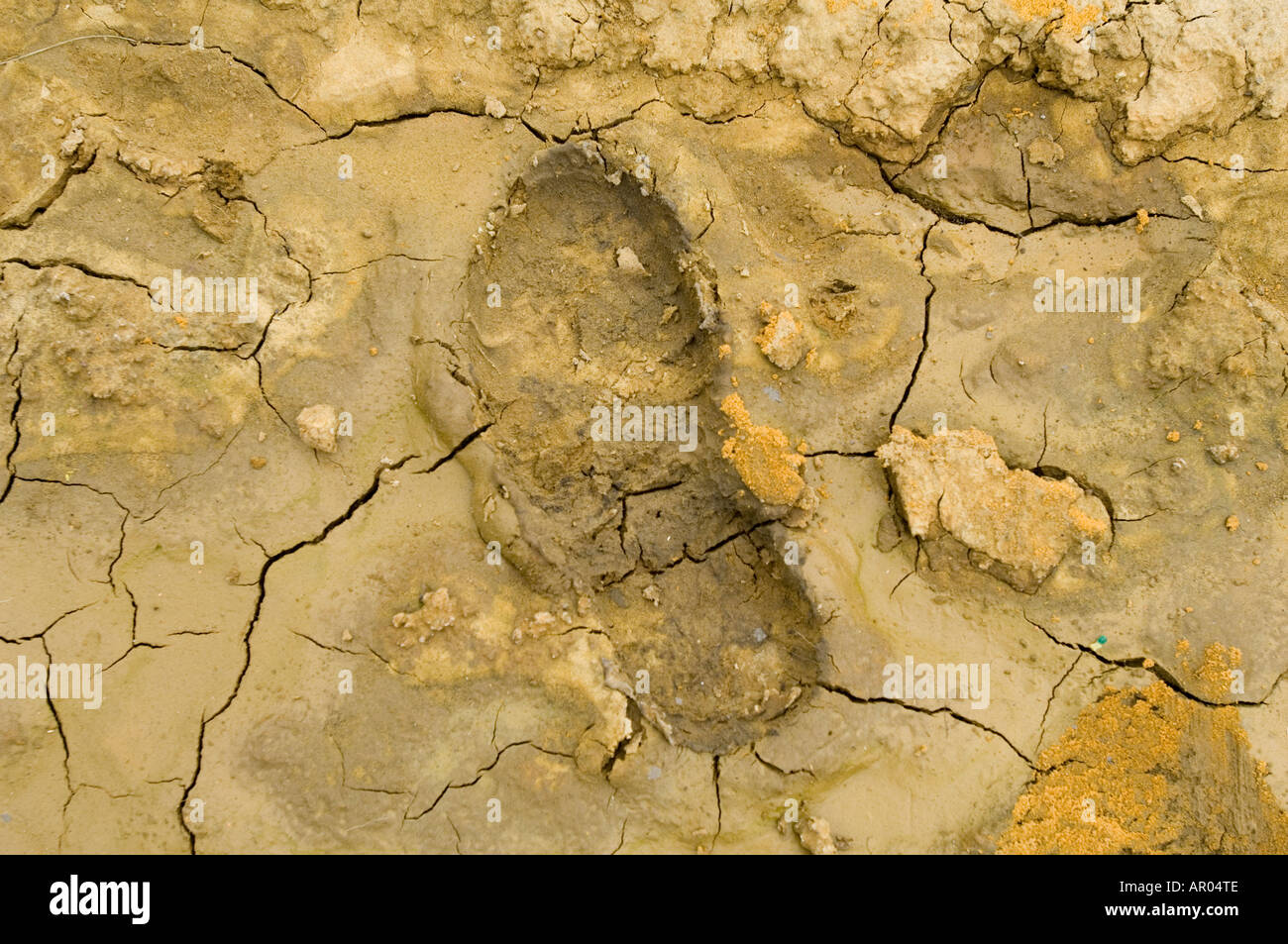

These are actually separate functions, an aspect that will be emphasized to our students right from the beginning."įor an even more real facet, future plans call for a designated crime scene room.

"The fact is," he added, "the 'CSI' programs give the impression that crime scene investigators do it all, from evidence gathering to lab analysis.
Shoe impression evidence interview professional#
It will make the transition from student to professional that much smoother," said Qualey. "The idea was to give as much of a real-life element to the curriculum as possible so that students will be well prepared for what will be expected of them in the field. A hands-on component will be rolled into these and other courses taught by current or veteran professionals from the field, where students will actually do procedures like fingerprint dusting or plaster casting footprints. "In fact, one criminal justice student graduating this May plans to continue on at Hilbert just so she can pursue a CSI degree."ĬSI students will be exposed to bloodstain pattern analysis, crime scene photography, fingerprinting techniques, serology and DNA, and forensic science aspects. "For a new major, we’re seeing significant interest," Qualey said. Thus far, student response has been highly positive. The college’s CSI program originated from one forensic science course that drew such strong student interest and demand that the new major was developed. It’s an intricate process to identify, collect and transport evidence, all areas addressed in Hilbert’s major," said Qualey. "Crime scene investigators are the conveyors of evidence to the lab. Long before the first "CSI" show debuted, the significant merit placed on crime scene evidence gathering and chain of evidence was brought to the forefront during the O.J. Using a crime scene field work approach, students will learn what’s involved in the proper identification and collection of evidence and the steps to ensure evidence is appropriately provided to a crime lab for analysis." "That focus," noted Qualey, "is what makes Hilbert’s program stand apart from others. However, Hilbert’s is a field-based, physical science bachelor’s degree, making it the only one of its kind at a Western New York college and one of only two statewide. Many CSI programs teach from the laboratory perspective, pointed out Edward Qualey, criminal justice chairperson who will also oversee the new CSI program recently approved by the State Education Department. Now, students can learn about this evolving field in a new four-year forensic science/crime scene investigation major starting in the fall at Hilbert College.Īccording to the American Academy of Forensic Sciences, 19 undergraduate programs in the country offer bachelor’s degrees in forensic science or investigation. Such detailed evidence gathering is all part of forensic crime scene field work like that captured in the widely popular "CSI" television franchise. Next is a plaster cast of a shoe print found in the front yard.

With this, a crime scene investigator goes to work meticulously examining blood patterns and collecting evidence such as fibers and fingerprints. That’s what investigators determined once on the scene.


 0 kommentar(er)
0 kommentar(er)
